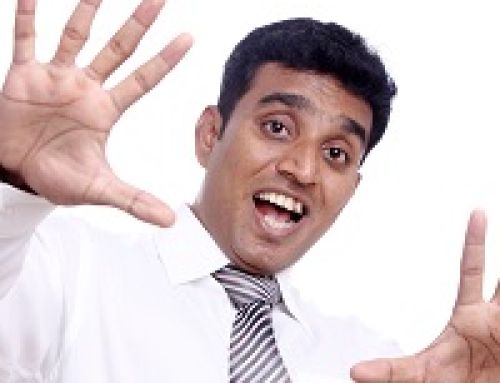[VIDEO] Northwestern University Medill School of Journalism – Matchmaker, Matchmaker – Jasbina on Dating
“As a second generation, something that we grew up with is the concept of “Don’t date. Don’t date. Don’t date. Okay, get married.” It’s the whole concept of going along with parents’ experience of not really dating, and then getting married.
Then there’s the “Don’t ask. Don’t tell.” I think there are a lot of Indian-Americans that are not following the “Don’t date. Don’t date.” They are dating. They are more similar to the mainstream culture. They’re doing that, but maybe their parents don’t know or they’re not sharing that with their parents.”
Matchmaker, Matchmaker
“It’s easy to get lazy” about dating, said Flora Brahmbhatt, a matchmaking “scout.” As a scout for Intersections Matchmaking, she hunts for people with specific qualities and refers them to matchmaker, Jasbina Ahluwalia, for a potential set up.
Would you ever go to a matchmaker for dating help? (answers)
Flora Brahmbhatt is single and actively looking to meet someone, similar to many young women. But while the 34-year-old’s searching for a mate, she’s also scouting the field for others.
The singles market in the United States has grown considerably since our parents’ generation. The number of unmarried men increased from 33 percent to 47 percent of the population from 1970 to 2000, according to the U.S. Census Bureau. The proportion of single women expanded from 38 percent to 51 percent during the same 30-year period.
I spoke with Brahmbhatt, who is a pharmacist in Milpitas, Calif., about her on-the-side job as a “scout” for Intersections Matchmaking. Brahmbhatt met with San Francisco-based firm’s founder, Jasbina Ahluwalia, about 18 months ago for a personal consultation and dating advice but was quickly recruited by Ahluwalia to network for Intersections.
As a scout, she attends social events, cocktail parties and alumni happy hours, sometimes looking for specific criteria in a man or woman, but sometimes to simply spread the word about the business, which has grown steadily since it was started in 2007. Over the past six months, the Intersections Web site has seen more than a 300 percent increase in hits.
Brahmbhatt was once told to search for a man who had all of his hair or was completely bald — nothing in between; no receding hairline. Recently, she attended the Network of Indian Professionals event “Work it Wednesdays,” business card exchange, which, she said, is really just a front for singles to meet each other.
“It’s easy to get lazy” about dating, said Brahmbhatt, whose parents emigrated from India in 1976. And that’s where Jasbina comes in.
I met Ahluwalia one month ago at a McDonald’s in Oak Brook, Ill., where she spent two hours telling me about matchmaking in the South Asian community. Ahluwalia explained how she asks her clients questions, such as “What’s the best advice you’ve ever received?” to understand their values and must-haves before attempting a match.
She also told me she’s a certified matchmaker, who along with 102 other professionals, is approved by the New York City-based Matchmaking Institute Inc., which conducted its first-ever annual survey in 2009. Although only 90 matchmakers responded from the 2,643 who were sent the questionnaire, the results show some trends in this emerging field.
The U.S. has seen a matchmaking revival a few years ago because of the success of online dating, said Jerome Chasques, one of the founders of the Matchmaking Institute. In other countries, such as India, China and Singapore, “matchmaking as a whole is much more a part of everyone’s life,” he added, stating that arranged marriages are frequently a cultural tradition.
Most matchmakers have more female than male clients, 31 percent of whom pay less than $1,000 for an annual membership, 32 percent pay between $3,000 and $5,000, and 12 percent pay more than $5,000. Ahluwalia charges $375 for her initial, two-hour consultation. After that, a specific search plan and date coaching are extra.
Brahmbhatt, who paid for her personal consultation, now gets compensated by Ahluwalia for her scouting work. But she’s not in it for the money, she said; it’s more about meeting people and getting out there.
“I think there are a lot of wrong people, but not necessarily one right person,” Brahmbhatt said, summing up her dating philosophy. I plan to meet Brahmbhatt in person in mid August to find out how her personal and professional pursuits are progressing.
_____
What do you think?
Would you like to add to the insights in above interview? Share your thoughts in the comments below.
_____





